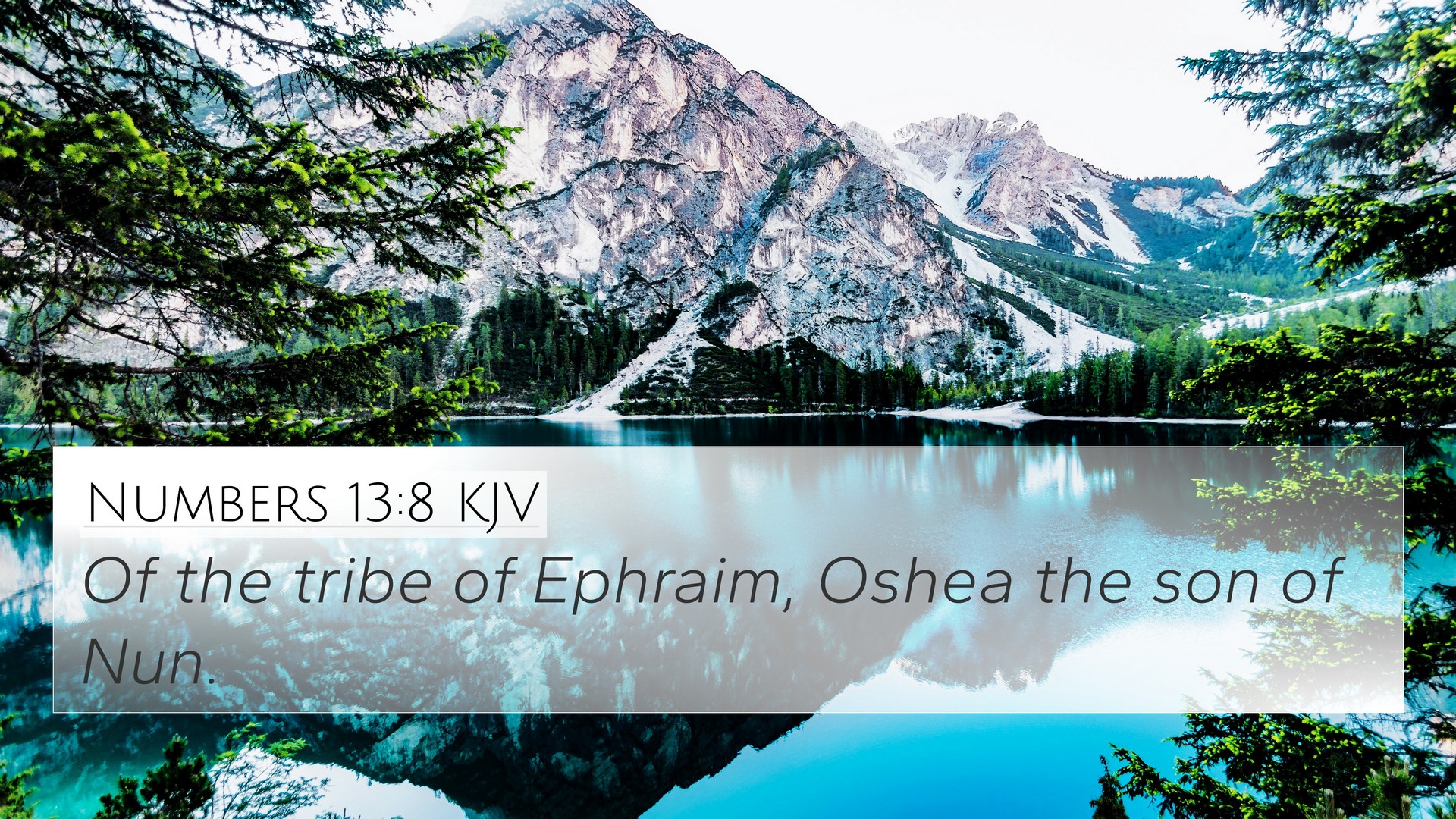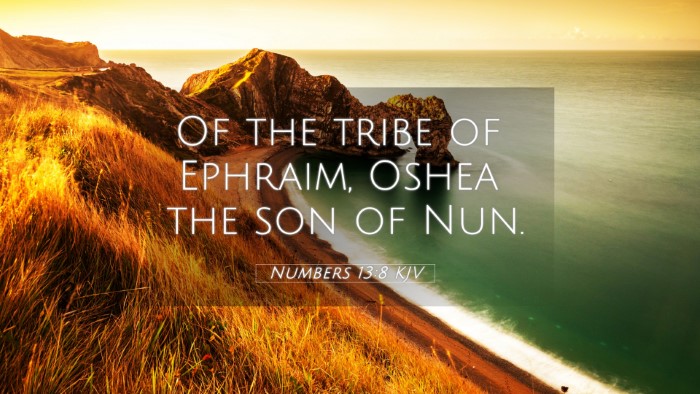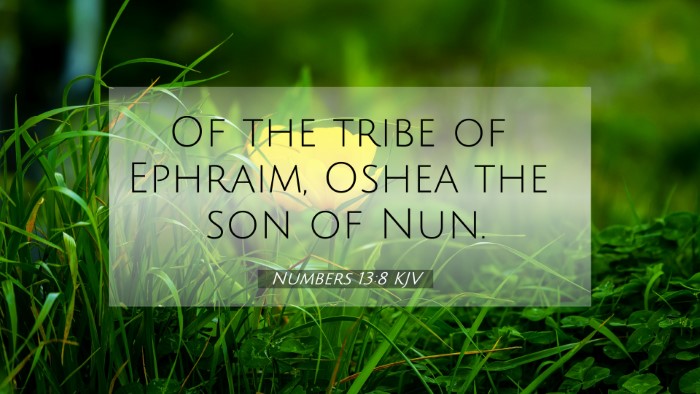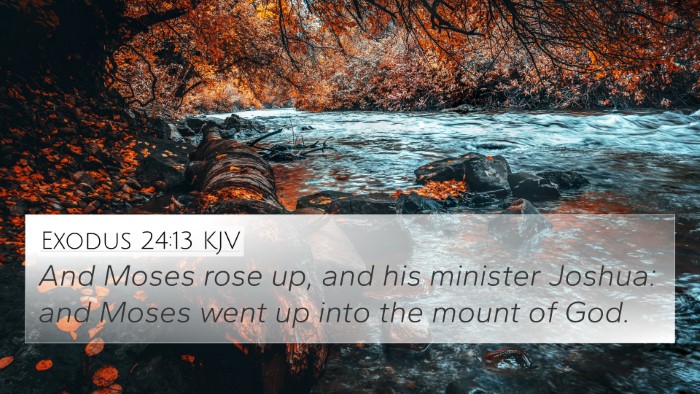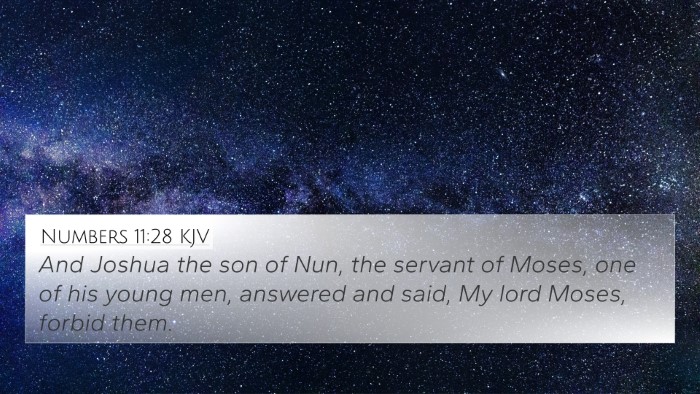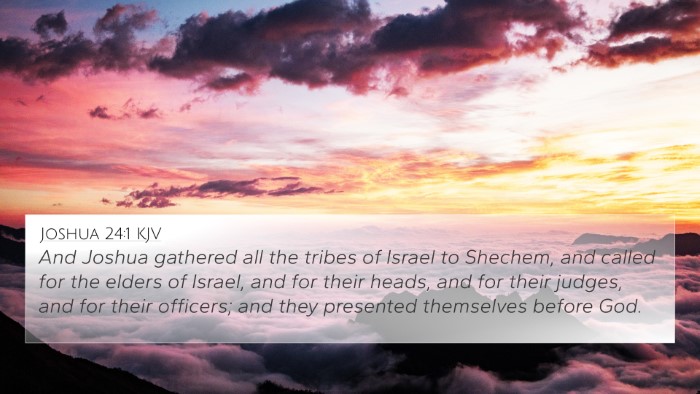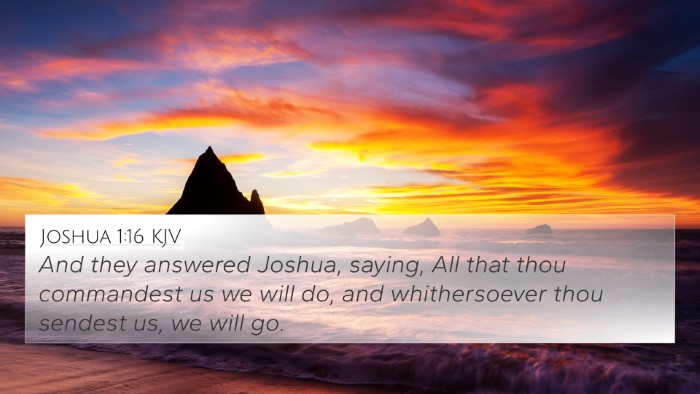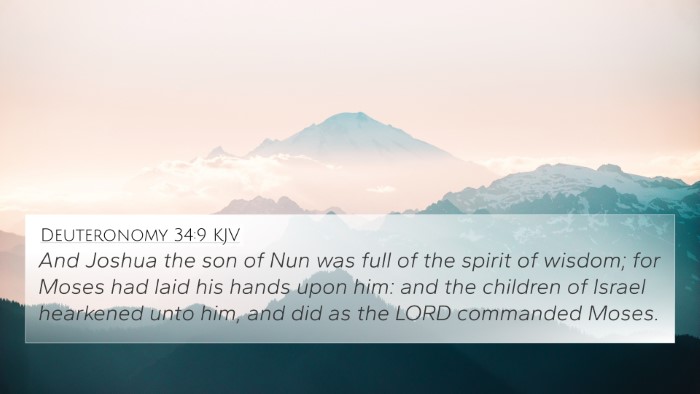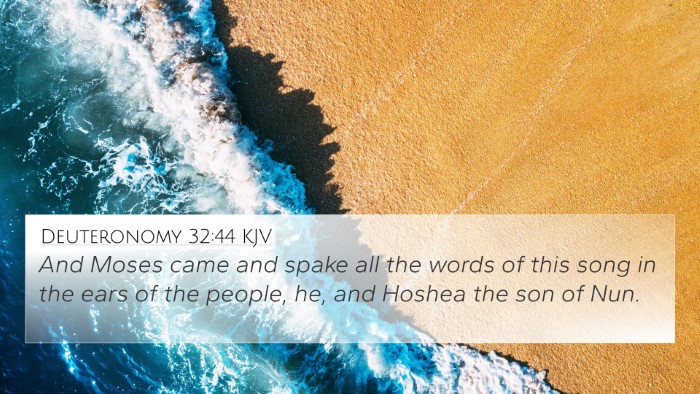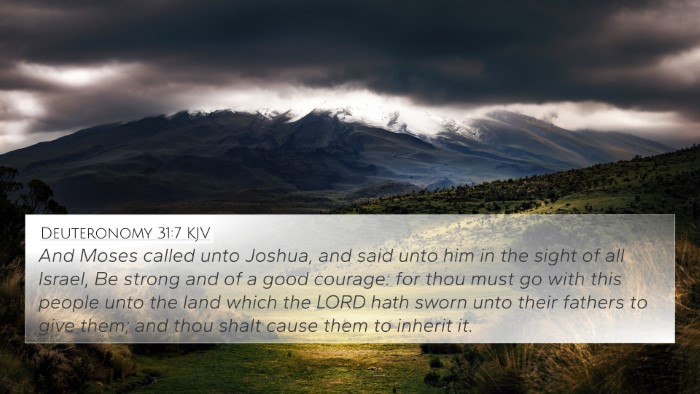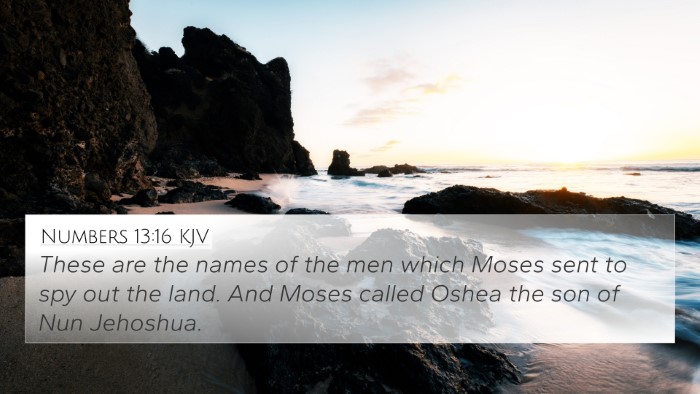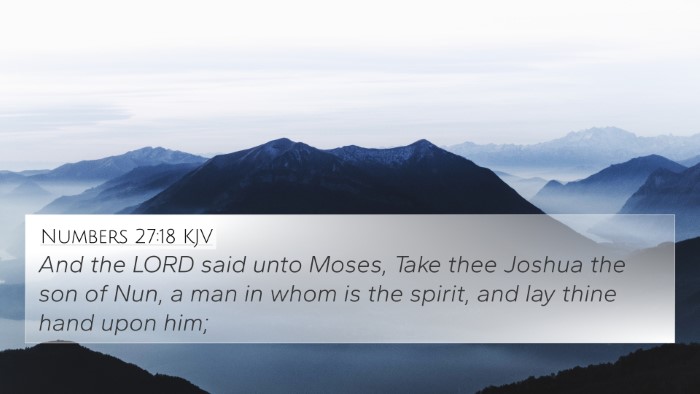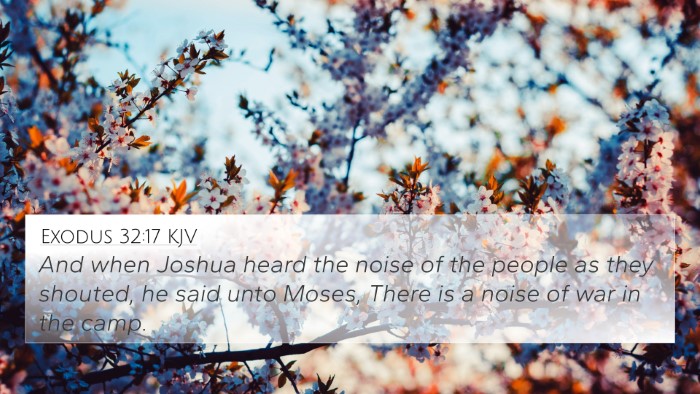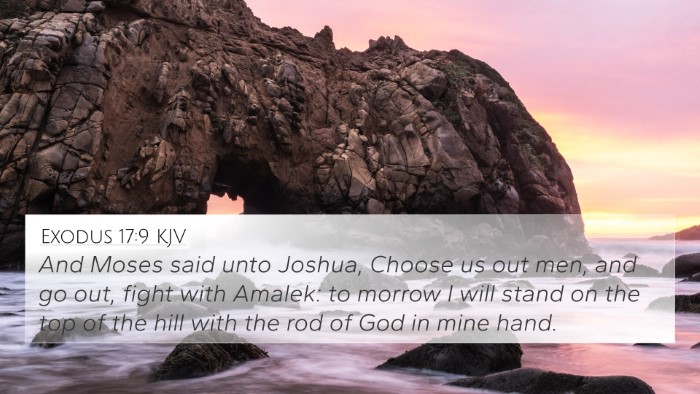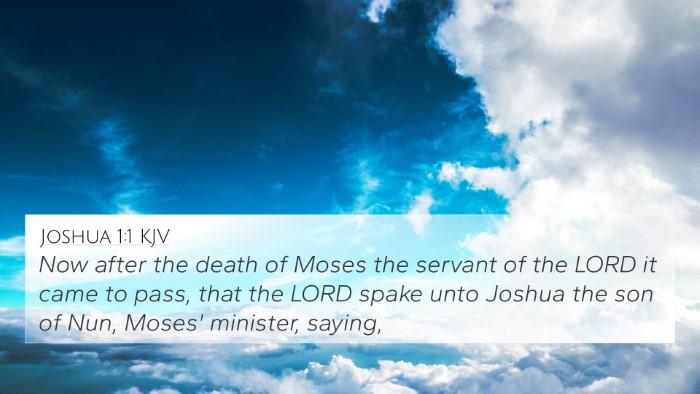Understanding Numbers 13:8
Bible Verse: Numbers 13:8 - “Of the tribe of Ephraim, Oshea the son of Nun.”
Summary and Analysis
This verse introduces one of the twelve spies chosen by Moses to scout the land of Canaan. Oshea, later named Joshua, represents the tribe of Ephraim, a prominent tribe in Israel.
Contextual Importance
Matthew Henry's Commentary: Matthew Henry emphasizes that the selection of spies was crucial for Israel's understanding of the land they were about to enter. Each spy represented a tribe, indicating the collective responsibility of Israel in the venture ahead. The choice of Oshea as a leader shows God’s sovereignty in choosing capable leaders who would later play significant roles in Israel's history.
Albert Barnes' Commentary: Barnes notes that the mention of Oshea, later called Joshua, hints at his future importance. As a leader destined to take the Israelites into the Promised Land, his early distinction as a spy foreshadows his significant role in the conquest of Canaan. This selection underscores the quality and trust placed in him, suggesting he was a man of faith and courage.
Adam Clarke's Commentary: Adam Clarke reflects on the dual names of Oshea (which means "salvation") and Joshua (meaning "the Lord is salvation"), indicating the spiritual importance surrounding his character. Clarke suggests that this name change is symbolic of God’s plan for salvation, foreshadowing the ultimate salvation through Jesus Christ.
Cross-Referencing Biblical Texts
The following verses connect to Numbers 13:8, providing a deeper understanding and context:
- Exodus 17:9: The first mention of Joshua leading in battle, showcasing his early leadership.
- Deuteronomy 1:36: Recognizing Joshua as the one who would enter the Promised Land, reinforcing destiny spoken in Numbers.
- Joshua 1:1-2: God commissioning Joshua after Moses' death to lead Israel into Canaan, fulfilling the role established here.
- Hebrews 3:16-19: A New Testament reflection on disobedience in the wilderness contrasted with faithfulness, echoing Joshua’s leadership in a faithful generation.
- Matthew 1:2-16: The genealogy of Jesus, where Joshua’s lineage leads to the salvation personified in Christ.
- Numbers 14:6-9: Joshua’s courageous stand against the spies’ disbelief, showcasing his faith in God’s promise.
- Exodus 33:11: The relationship between Moses and Joshua, illustrating the mentorship that equipped Joshua for leadership.
- Luke 3:29: Mentioning the ancestry of Jesus linking back to Joshua, demonstrating the continual plan of God.
Thematic Connections
This verse and its cross-references highlight significant themes, including:
- Leadership and Trust: The selection of spies demonstrates the importance of establishing trust within leadership as Israel prepares to enter a new land.
- Faith and Obedience: Joshua's character exemplifies faith in God, crucial for the Israelites’ success.
- Divine Salvation: The connection of Joshua’s name to salvation reveals a deeper theological motif of God’s redemptive plan unfolding through history.
- God’s Sovereignty: The verse embodies the idea that God carefully selects individuals for His purpose, as seen throughout biblical history.
Conclusion
Numbers 13:8 serves as a critical entry point into understanding the significance of Joshua and his role in Israel’s journey to the Promised Land. Through the lens of public domain commentaries, it becomes evident that his selection, name, and future actions are intertwined with the overarching narrative of God’s salvation history. This indicates a rich tapestry of faith, leadership, and divine purpose woven throughout scripture.
Explore More
For deeper exploration on how to find cross-references in the Bible, utilizing a bible concordance can enhance your study. Tools for bible cross-referencing provide extensive resources to help you examine the connections between verses effectively. Use Bible reference resources like cross-reference guides to navigate effortlessly through related verses, allowing for a comprehensive understanding of scriptural themes.
Consider how you can utilize these insights for bible cross-reference guide in your personal study or sermon preparation, enhancing your scriptural interpretations through a thorough understanding of links between verses.
